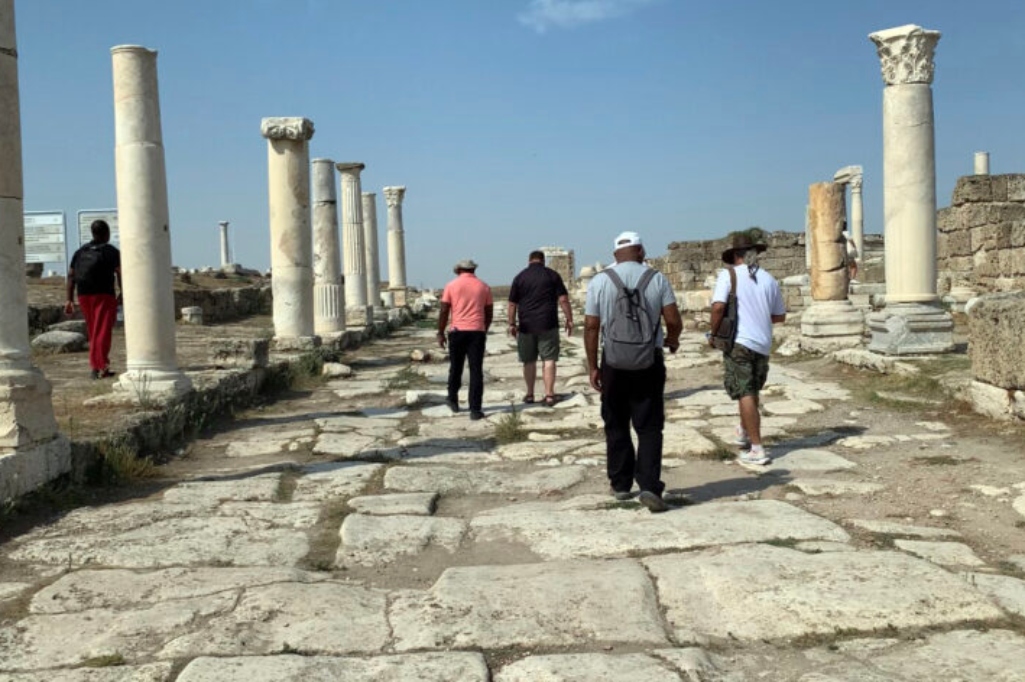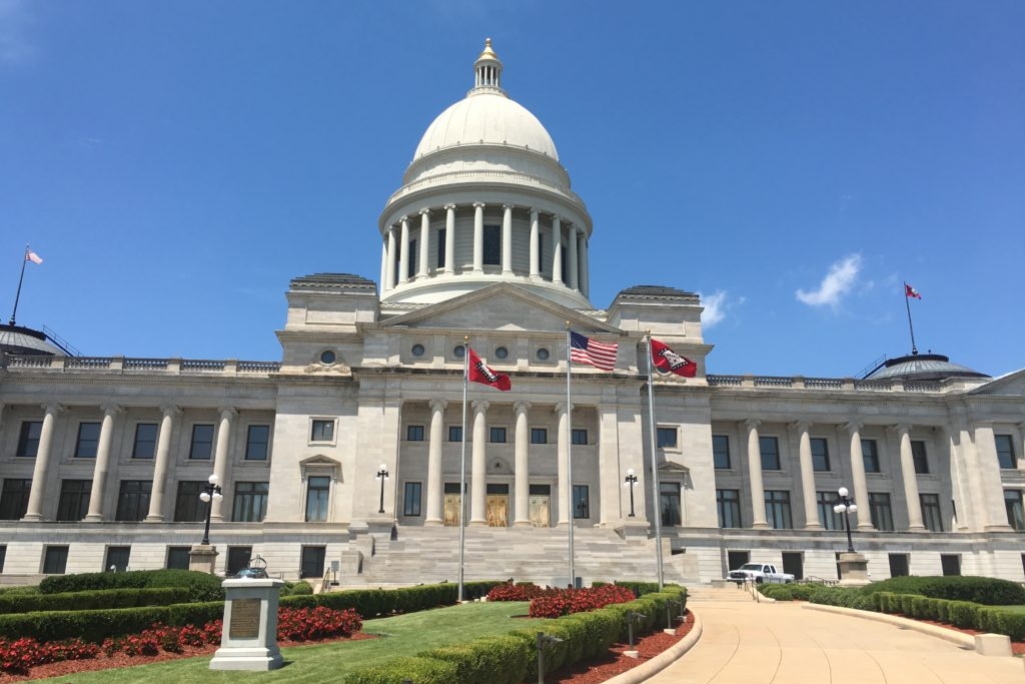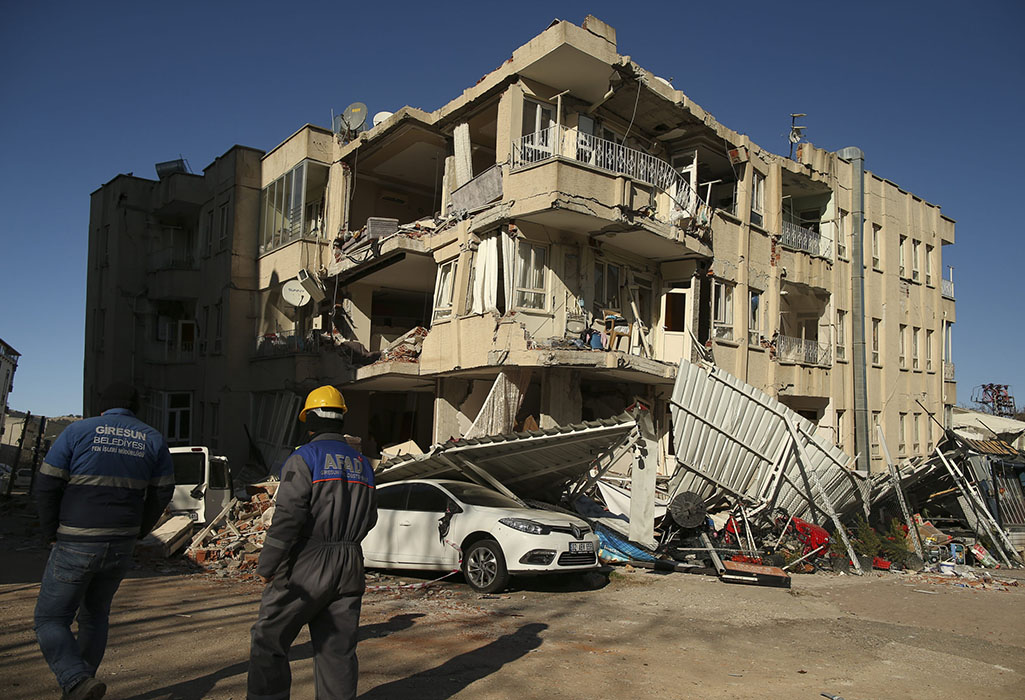
Alabama pastors walk the Roman Road in Laodicea.
Cars and buses buzzed past a group of people walking the Turkish streets. The group enjoyed modern plumbing, and with the flip of a switch, lights would come on in most buildings. Still, the ruins that stood before them, with their dirt paths and ornate columns, reminded them of where they were.
A group of Southern Baptists was at the site of one of the seven churches in the book of Revelation. This and other sites in Turkey are popular with tourists. Local children approached the group. The children were on a field trip, and the most interesting thing to them wasn’t the history or the architecture but the unique skin tone of the American group. The children wanted pictures of them and with them. The African Americans were glad to oblige the selfies.
Scotty Goldman, the Alabama Baptist State Board of Missions director of the Office of Global Missions, who helped organize the trip, laughed while recounting that, as one of the few Caucasians on the trip, the kids ran right past him, eager to befriend the darker Americans. He wasn’t offended that he was overlooked. In fact, he was satisfied that these pastors were seeing up close how their race could help them make connections all over the world.
The African Americans were surprised by the warm welcome of the locals. They wondered if they’d be accepted in this Central Asian culture. After the trip, they started seeing travel to Central Asia as an opportunity for all Southern Baptists, and specifically for Black Southern Baptists, to see how they can be used among the lost.
The four-day journey included excursions to the modern sites of the ancient cities of Thyatira, Pergamum, Sardis, Laodicea, Smyrna, Philadelphia and Ephesus. The first leg of the trip focused on studying the message written to these churches and walking the streets where the earliest Christians lived.
Where once was a thriving church, now, the presence of believers is rare, and in most cases, cities are without a healthy Gospel-centered church. The tour group’s goal, in addition to engaging with the language of the book of Revelation, was for pastors to learn about the status of the church in the region, while experiencing the culture, people and cuisine.
The group hopes to take what they experienced and seek opportunities to reach Central Asians all over the world.
In the book of Revelation, the Spirit of God spoke to seven churches. Tour organizers wanted to take the Black pastors deeper into the challenge to those ancient churches and what that message means for the Church today. As the trip ended, organizers wanted them to visualize how they can equip their churches to be a part of seeing the Revelation 7:9 vision come to pass across the globe.
Terrence Jones, pastor/planter at Strong Tower at Washington Park in Montgomery, Ala., decided his church needed to hear the messages he heard overseas too. Since returning home, he’s preached through a sermon series on the seven churches, sharing his firsthand experiences.
As he walked the streets and toured the sites, he was awestruck.
“It’s one thing to believe the Bible, read the stories and have faith in what you’re believing in. It’s another thing altogether to be a part in some way of the history of it all,” he said. “To be walking streets Paul and Timothy and Priscilla and Aquila and Apollos walked, it was just fascinating, eye-opening and super encouraging to just be a part of that.”
He was moved by the history, but he was also struck by the spiritual lostness.
Exploring the historic ruins of the temples, Jones imagined the lostness during the apostle John’s day, classifying it as palpable. As he learned more of the debauchery that accompanied the ancient idol worship, he imagined how hard it must have been to be among those first believers.
Exiting the premises, he heard the Islamic call to prayer ring out over the town’s loudspeakers. It was a stark reminder that the problem of spiritual lostness — the greatest problem in the world — hasn’t been solved yet. The people in modern-day Ephesus worship another false god and not the One True God.
Coming from Alabama, Jones passes a church every few miles. There, along Paul’s missionary journey, it was hard to find a believer.
The group did meet one believer who looked online for answers to spiritual questions. His search led him to meet a believer who began to share the Gospel. God had been preparing the man’s heart, and after just a couple months, he gave his life to Christ.
Jones was surprised to hear about the persecution that many Central Asian believers face. This believer shared with the group from the U.S. that he had been beaten, had his business sabotaged and was out of a job because the persecution had gotten so intense. He said he felt abandoned by his own people.
Yet, Jones described the man as “happy, so excited — sharing what little food he had with us and just encouraging us to walk with the Lord. I was just blown away that he would be so faithful under that persecution.”
For Jones, lostness wasn’t the only thing that stuck out about his trip. He grew in his understanding of the faithfulness of believers who risk it all every day around the world to live out their faith and share the Gospel. He heard the message that much of the world’s lostness is concentrated in hard-to-reach places that are resistant to the Gospel.
On the trip, the team began to understand that as Black believers, they shouldn’t be limited in where they take the Gospel. God wants all believers to be obedient to go where He leads, even if the destinations or people groups seem uncomfortable or risky.
Goldman agreed. Since returning from the trip, he’s been excited to see the churches he serves invest in missions. He is telling all the churches he visits how their gifts are used to reach lives around the world.
(EDITOR’S NOTE – Myriah Snyder is senior writer/editor for the IMB.)


